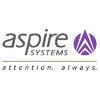1 Brodos QA Lead Job

QA Lead
Brodos
posted 28d ago
Job Role Insights
Flexible timing
Key skills for the job
Job Description
CANDIDATES BASED IN GUJARAT ARE HIGHLY PREFERRED.
QA Manager Roles and Responsibilities
1. Strategic QA Leadership:
Develop and implement a QA vision aligned with organizational goals.
Define quality KPIs and metrics that go beyond traditional testing metrics, emphasizing code quality, customer experience, and system reliability.
2. Process Improvement and Optimization:
Design and continuously improve QA processes to embed quality in every stage of the SDLC.
Implement frameworks to enhance automation, code reviews, and CI/CD processes for faster feedback loops and early defect detection.
3. Comprehensive Quality Assurance:
Oversee end-to-end QA, encompassing functional, performance, security, and usability testing.
Build and enforce standards for code quality, documentation, and design to ensure maintainability and scalability.
4. Quality Control and Monitoring:
Lead initiatives in monitoring application health, user experience, and performance in production.
Develop incident response strategies and retrospective analyses to learn from issues and prevent recurrence.
5. Team Development and Management:
Recruit, train, and mentor a high-performing QA team, fostering a culture of quality ownership.
Define team goals, conduct performance reviews, and support career development.
6. Collaboration and Communication:
Serve as a quality advocate, collaborating closely with development, product, and operations teams.
Provide actionable insights and clear reporting to stakeholders, making data-driven recommendations for product improvement.
7. Innovation and Automation:
Stay updated with QA technologies and introduce relevant tools and methodologies.
Drive test automation to ensure efficient coverage, reduce repetitive manual testing, and facilitate fast feedback.
8. Compliance and Best Practices:
Ensure adherence to regulatory standards and best practices for quality and security, especially relevant for sensitive data.
Implement policies for handling data integrity, privacy, and system robustness.
9. User-Focused Quality Management:
Incorporate customer feedback into the QA processes and analyze production issues for continuous improvement.
Set up user-centric quality validation processes, such as A/B testing, to align with real-world usage.
Required Skills and Experience
Bachelors degree in Computer Science, Engineering, or a related field.
Proven experience as a QA Manager or in a senior QA role.
In-depth knowledge of quality assurance processes, methodologies, and best practices.
Experience with automation frameworks, CI/CD pipelines, and performance testing tools.
Strong problem-solving skills and a data-driven mindset.
- Freedom to realize your own ideas individual career development opportunity.
- A motivating work environment, flat hierarchical structure, numerous company events which cannot be forgotten and fun at the workplace with flexibilities.
- Professional challenges and career development opportunitie
Employment Type: Full Time, Permanent
Read full job description What QA Lead at Brodos are saying
QA Lead salary at Brodos
reported by
2
employees
with 10
years exp.

₹12.6
L/yr - ₹16.1
L/yr
13%
less
than the average QA Lead Salary in India
View more details
What Brodos employees are saying about work life
based on 8 employees
Flexible timing
Monday to Friday
No travel
Similar Jobs for you
Share an Interview
































